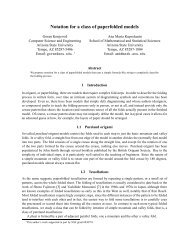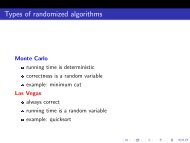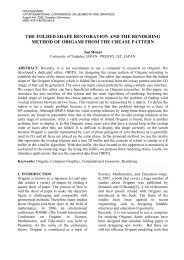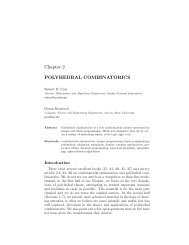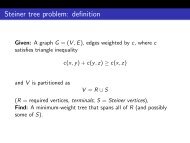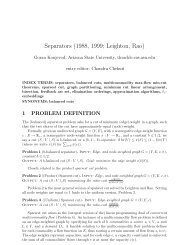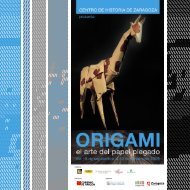Set cover problem: definition - Organic Origami
Set cover problem: definition - Organic Origami
Set cover problem: definition - Organic Origami
You also want an ePaper? Increase the reach of your titles
YUMPU automatically turns print PDFs into web optimized ePapers that Google loves.
<strong>Set</strong> <strong>cover</strong> greedy: analysis<br />
Suppose the elements are picked in order e 1 , e 2 , . . . , e n .<br />
Lemma<br />
For every k = 1, . . . , n, price(e i ) ≤<br />
OPT<br />
n−k+1 .<br />
Proof.<br />
At any time during greedy, compare what is left to be <strong>cover</strong>ed and<br />
the sets of the optimal solution that have not been used. These<br />
sets together cost at most OPT and <strong>cover</strong> at least |C|. Therefore,<br />
the most cost-effective set has α ≤ OPT /|C|.<br />
In iteration that <strong>cover</strong>ed e k , |C| ≥ n − k + 1. Thus<br />
price(e k ) ≤ OPT<br />
|C|<br />
≤<br />
OPT<br />
n − k + 1



